Joe Jukes is a Queer Geographer and a PHd Researcher with The University of Brighton. Joe also curated the Queer Constellations exhibition that I was involved in at the Museum of English Rural Life in Reading earlier this year. Currently based in rural Somerset, Joe is researching the experiences of queer people living in the area:
‘The countryside is often seen as a place that lacks queerness, or at least opportunities through which to live queerly. Even so, many queer people continue to live in rural areas. In fact, non-metropolitan space plays host to some very deviant and dissident sexualities and experiences, whose queerness remains underappreciated.
I’m currently researching how one can respond to this tendency, and am doing so by studying queer relations, affects and identities in one rural area in SW England. I question the dominance of ‘lack’ and ‘absence’ in defining rural queer space, and am working towards new ways on conceptualising ‘rural queer’.’

Joe and I met to start our walk in Frome Town Centre, and took a walk out of town following the path of the River Frome, a tributary of the Bristol Avon. It was afternoon and the low Autumn sunshine was shining through the trees. We chose the River Frome because of its geographical location between our homes, its link with the Bristol Avon which I’m keen to get to know better, and because beavers are now living wild on the Frome.


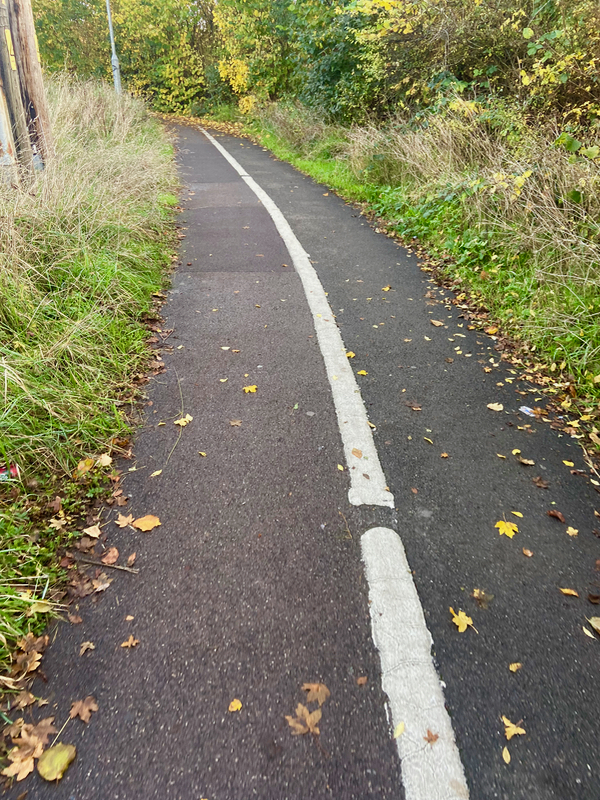
I was particularly interested in visiting the Rodden Nature Reserve, because of its history, and because a family of beavers have made it their home. I’m fascinated by the role that beavers can play in ‘wilding’ or queering rivers, giving them back their free flowing nature after being straightened and constrained by humans, and how many wetland reserves exist as the result of gravel extraction or other industrial processes.
‘Rodden Nature Reserve was created from an area of previously agricultural land adjacent to the A362 Warminster Road by the supermarket chain ASDA Stores Ltd in 2004. Extensive work included reprofiling a hill, diverting the Rodden Brook, rerouting a private road and creating two main lake areas. This resulted in an 8.7 hectare wetland habitat which is part of the flood amelioration strategy for Frome. The reserve remains the property of ASDA and is open to the public from September to February, although it can be viewed from the road at all times…’
www.roddennaturereserve.org.uk


The day before we met I had put together a couple of simple pads of paper, clipped together between a sheet of card together with a clear plastic bag. I wasn’t sure if Joe would want to draw/write/collect or if we would focus on talking as we walked, but I like to offer some way to document and reflect on our Queer River walks.
I had also thought a little about what I’d like to cover in our conversation, a few loose ideas. I’d written in my skectchbook ‘Beavers, Boundaries and Binaries‘. I don’t like to plan the walks too rigidly, but to let the conversation to flow wherever it needs to, but I also like to make the most of the time with each collaborator and their specific skills/knowledge.

As we walked I told Joe about a conversation that I’d had with Nick Hayes, author of The Book of Trespass, earlier in the week. Nick had contacted me to interview me for his follow up book and we had talked a little about trespass means to different groups of people, including people from the LGBTQi+ community.
‘The Book of Trespass takes us on a journey over the walls of England, into the thousands of square miles of rivers, woodland, lakes and meadows that are blocked from public access. By trespassing the land of the media magnates, Lords, politicians and private corporations that own England, Nick Hayes argues that the root of social inequality is the uneven distribution of land.‘
Good Reads – The Book of Trespass

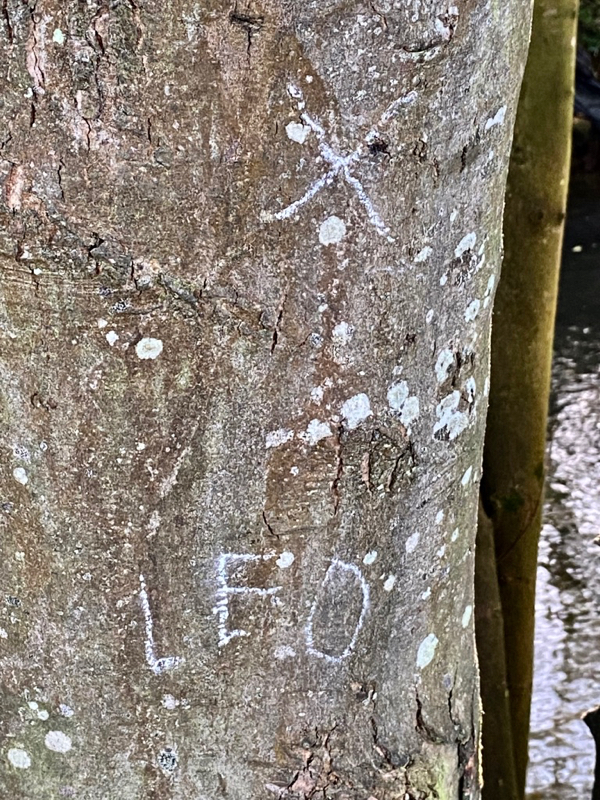
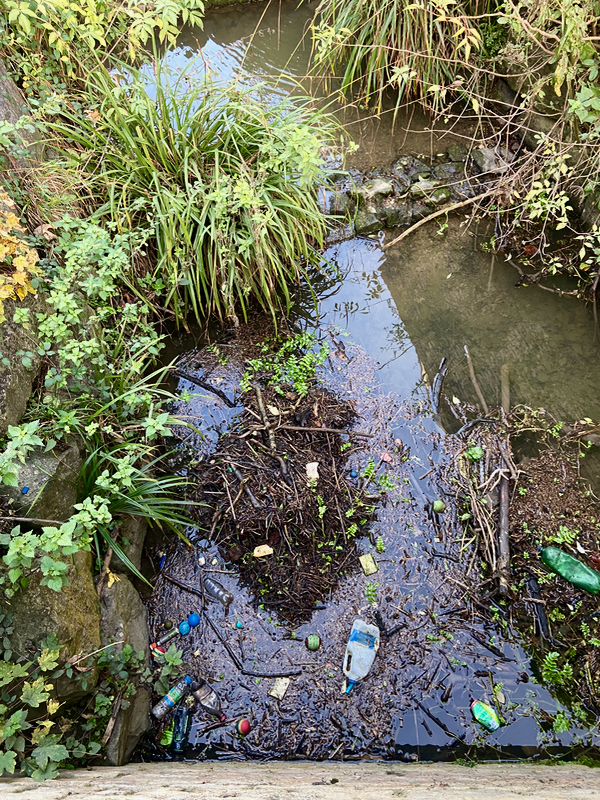
Nick’s follow up book, The Trespassers’ Companion, which is due to be published in April 2022, ‘shows how we can reclaim our lost connection to the land‘ through contributions from a range of people with different perspectives on the UK countryside and the Right to Roam campaign which Nick co-founded.
Joe and I talked about how queer people make everyday transgressive actions, everyday trespasses across gender divides. We talked about the relationship between queer and non-binary identities, how boundaries and binaries of sexuality and gender identity can restrict and constrain in similar ways to our canalisation of rivers. How beavers can unlock a river’s true identity by enabling it to flood and to flow, bringing greater diversity of life to the area, as the boundary between land and water blurs.
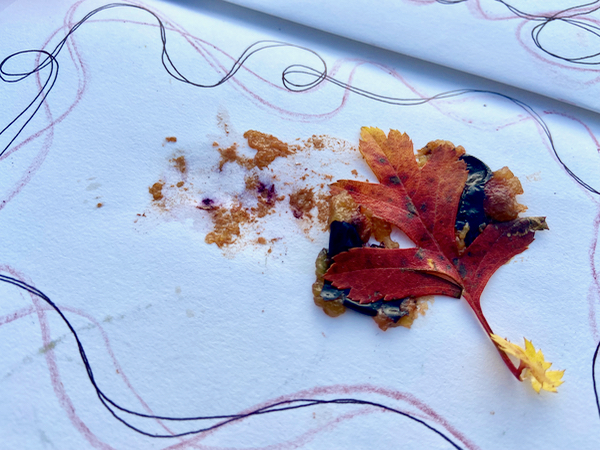
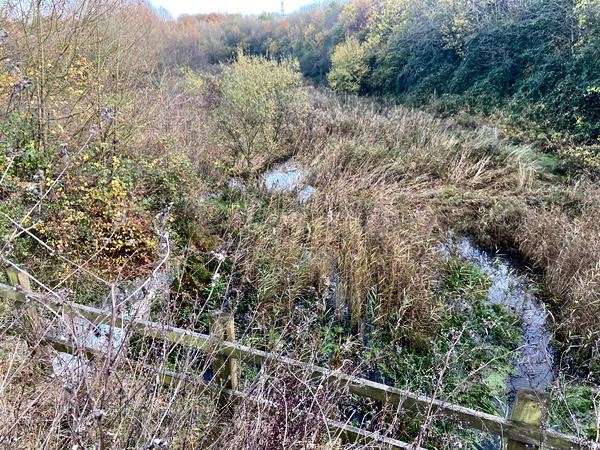
Along the river banks someone had set up a story trail with signs and markers that told a story of a beaver and their animal friends. It felt exciting for me to see how the presence of beavers was starting to permeate people’s awareness and alter their relationship with the river. When elsewhere legal battles are continuing, to enable beavers to be released into the wild, these beavers were already making their presence known within local popular culture.
As we reached the area of the Rodden Nature Reserve, where I’d read the family of beavers were living, we looked down over a bridge and watched for signs of movement, or evidence of beaver teeth on tree stumps. This southern area of the reserve is surrounded by roads and the Asda car park. A ‘wild’ (unofficially reintroduced) animal has chosen the reedy, swampy, scrubby area created by a supermarket chain to make its return.


Our conversation and walk was accompanied by the noticing of different sizes and colours of leaves or the wording on signs, discussions on the approach and image of different ‘nature writers’ or artists, and the role of arts-based methods in research. I was happy to watch the way Joe used the walking pages, squashing and rubbing berries, drawing in response to surrounding features, and to listen to their thoughts on water and memory.
As rivers pass through rock, eroding and carving pathways (as through the limestone caves of Somerset) do they remember the paths they have created? Do our memories of times spent in/by rivers flow away with them? Is a river ever the same as the one we have experienced before?
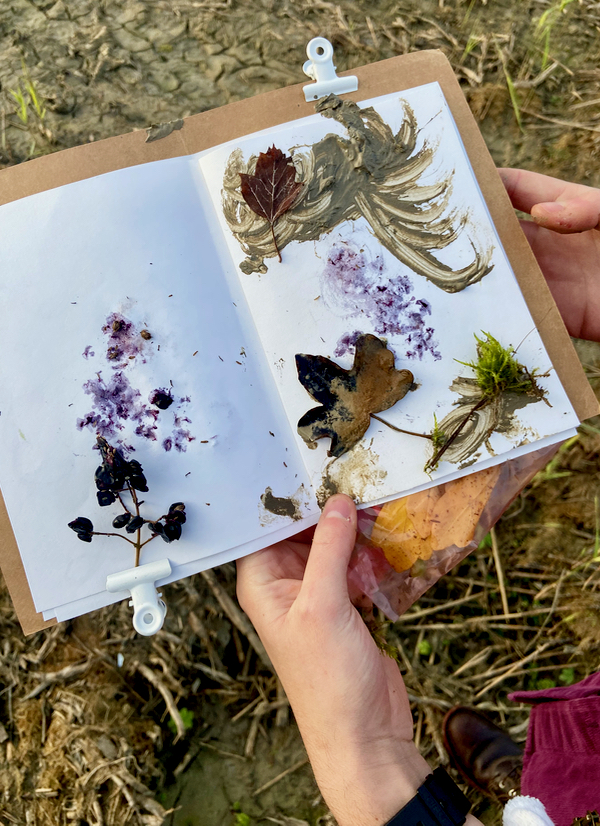
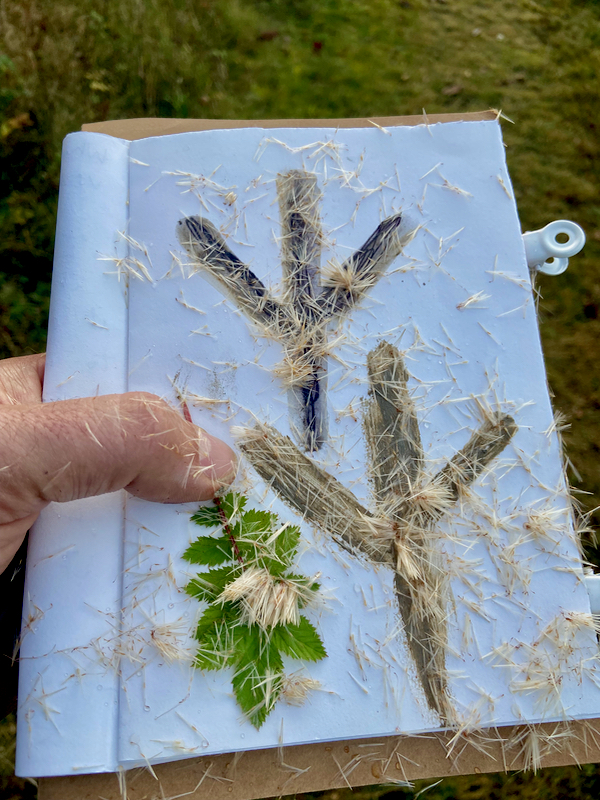
We continued on to end our walk (before a return trip to the car park) in the area of the reserve that is accessible to the public, stopping to look for footprints and to dip our own fingers into the clay scraped by a digger to open up the water, blowing at floaty reed mace seeds, and working into our pages as we followed a path around the lake.
Before we left to head back to our cars, Joe poked at a chunk of wood with their foot which was floating at the edge of the water. Picking it up we realised that is had been cut and shaped by beavers, the marks left by their chisel-like incisors clear in the surface. I won’t go into too much detail on how exciting I found this, except to say that touching these marks and carrying the wood home in my bag came a close second to an actual sighting of a beaver.

The wood, which I’ve washed and dried, will now come round with me to different groups and individuals that I work with, helping to tell the story of beavers’ place in our rivers and to spark new Queer River conversations.


I’ve started to draw to make sense of my thoughts on beavers, boundaries and binaries, and on trespass too. I’ll keep returning to these same themes, as they connect and interweave with previous Queer River conversations, and plan to keep investigating beavers as connectors of land/water, above/below, past and future, through walking with the rivers where they live, and researching their place in stories and mythology.
As always, I have so much left to process from our walk, and I’m grateful to Joe for sharing their throughts and experiences with me.
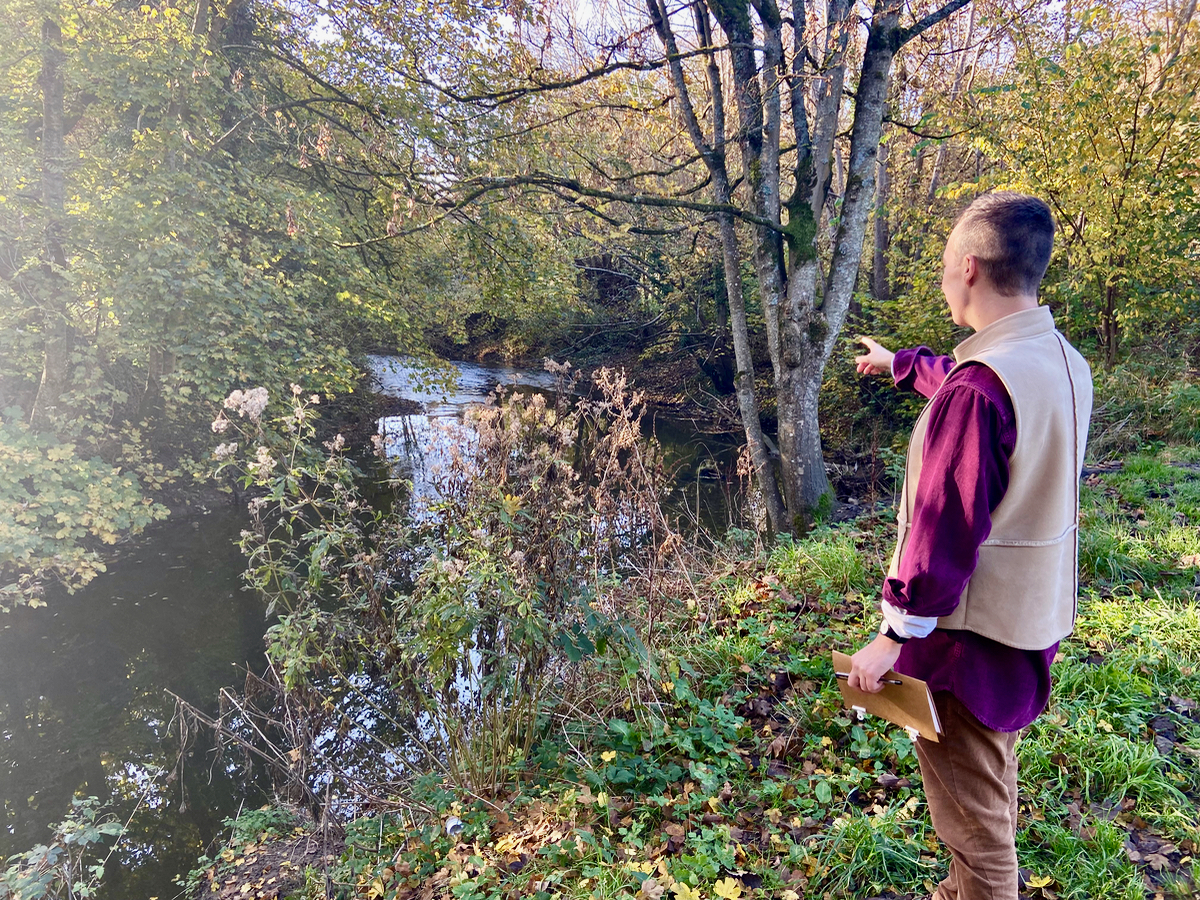
Reblogged this on James Aldridge – Art, Ecology and Learning and commented:
This post, originally published on the Queer River blog (www.queerriver.com) in November 2021, shares the latest in a series of Queer River walks with a range of collaborators.
LikeLike